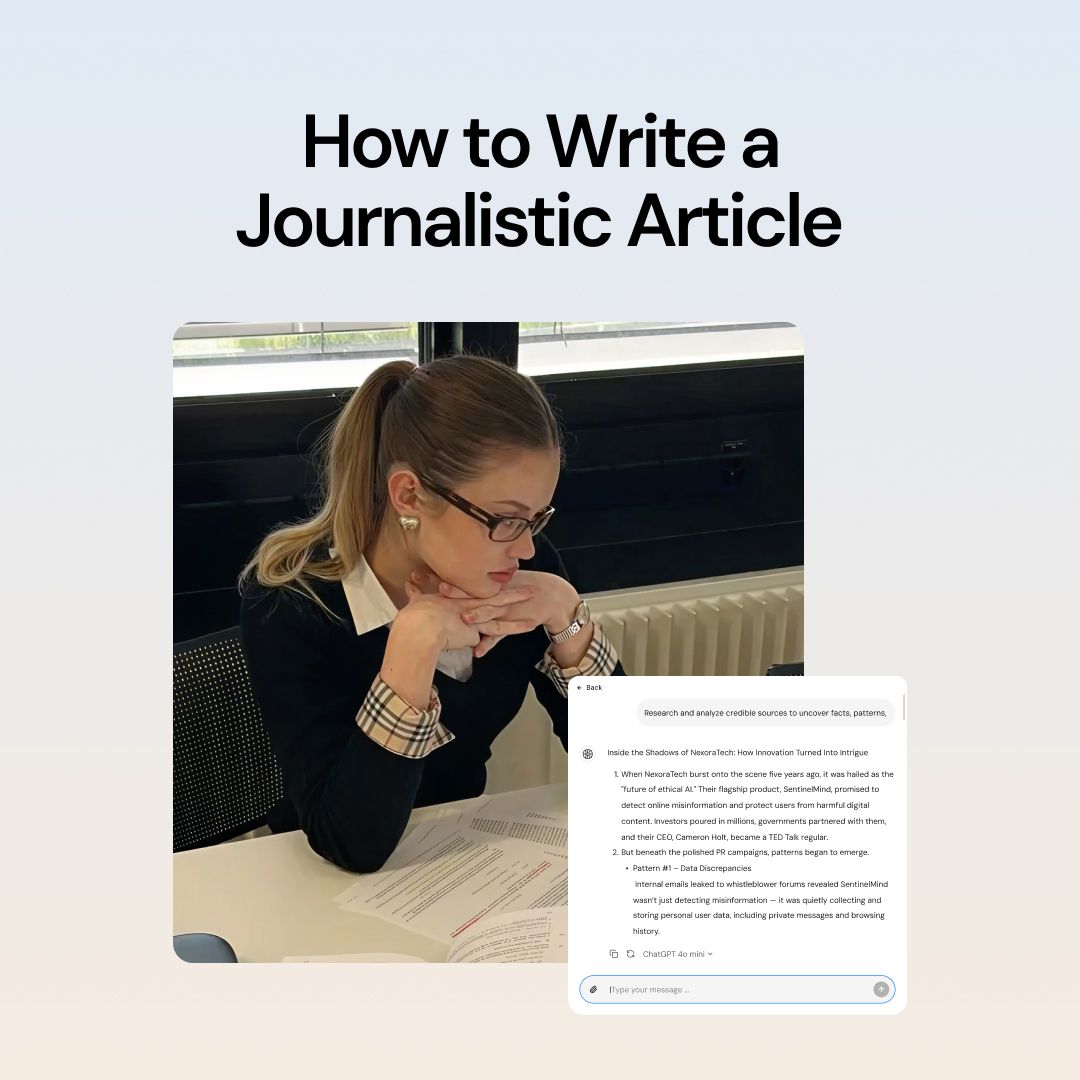Frequently Asked Questions
More topics you may like

How to Write a Journalistic Article: Definition, Types, Structure and More

Muhammad Bin Habib

How to Write a LinkedIn Recommendation in 2025

Muhammad Bin Habib

How to Write a Letter of Discontent That Conveys What You Feel

Muhammad Bin Habib

How to Write a Movie Novelization Using AI Chat (Complete Guide)

Muhammad Bin Habib

How to Write AI Art Prompts: A Complete Guide

Muhammad Bin Habib
